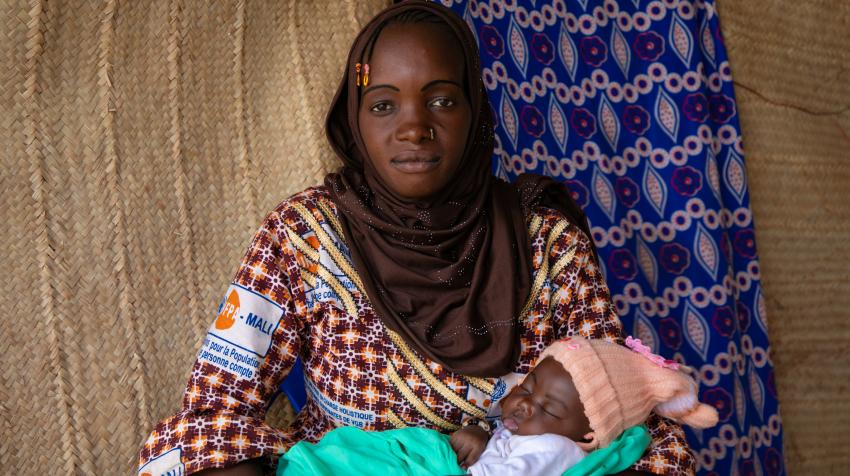Latin America is the region in the developing world where democracy is now almost universal.1 Its roots, however, are weak. Latin America has a population of approximately 550 million people, of which about 44 per cent live under the poverty line and 18 per cent are affected by extreme poverty. The socio-economic inequality is admittedly the greatest in the world. Both realities encapsulate the greatest challenges facing the region.
I have selected nine priority areas, which, if addressed, could make a difference in the lives of millions of peoples in the region; in each area the United Nations should play a role, either at the centre of the effort or as a facilitator.
A right to democracy. The relationship between human rights and democracy has been dealt at length in doctrine and practice. Democracy is founded on the primacy of the law and the exercise of human rights. In a democratic State, no one is above the law and all are equal before the law.2 When the Organization of American States General Assembly met in 1991, it approved the "Santiago Commitment to Democracy" and Resolution 1080, both landmarks in the development of what I called the "emerging right to democracy" in the Americas -- a growing acceptance that democracy can and should be defended through peaceful collective action; all participating countries had democratically elected governments. The continued existence of democracy cannot be taken for granted, even though there are legitimate collective instruments to act multilaterally to impede or reverse abrogations of democratic rule. Most countries of Latin America are attempting to consolidate democratic gains and have successfully resisted coup attempts; but the situation in the region is more complex than a simple division between democracies versus dictatorships.
Democracies must deliver to their citizens. Though economic growth is fundamental to address people's demands, well-focused social policies to create equal opportunities are fundamental for democratic governance. It is necessary to work for an integrated and well-coordinated system of democracy promotion and defense at a global level. It seems desirable to attempt coordination, and identify sets of instruments and measures for fostering democracy while differentiating according to the degree of consolidation of democracy in the country. In short, we need to get the United Nations more actively involved in promoting the right to democracy. Recommended measures should go beyond the prevalent approach of rescuing democracy once it has collapsed. The United Nations should become a proactive agent in the dissemination of democratic principles.
Development. At the top of the Latin American development agenda is the need to implement the Millennium Development Goals (MDGs). Poverty and inequality are at the core of the region's concerns. Nobody disputes that countries are primarily responsible for their own economic and social development. This has been eloquently stated in the Monterrey Consensus, though industrialized countries have to implement their commitments in relation to official development assistance and other areas.
The development of innovative financial mechanisms that contribute to the mobilization of resources for development should be encouraged. Chile, with Brazil, France, Norway and the United Kingdom, launched, on 19 September 2006, the International Drug Purchase Facility, which aims to provide long-term access to quality treatment at the lowest price for the fight against HIV/AIDS, Tuberculosis and Malaria.3 The Doha Round of multilateral negotiations should address the issues of importance for developing countries and result in a stronger multilateral trading system. The United Nations should take into account the specific needs of middle-income countries, since the highest proportion of these countries (79%) lies in Latin America. The Intergovernmental Conference on Middle-Income Countries, held in March 2007 in Madrid, produced important insights on their situation.
Implementation of human rights standards.The implementation of human rights nowadays is less a problem of having international standards than a question of compliance with those standards. There is a need to put the emphasis on implementation rather than standard-setting activities. Universal ratification of human rights instruments, as well as the withdrawal of reservations to them, remains a pending task. Other areas deserving attention are the development of two concepts that were included in the 2005 World Summit Outcome Document: the notion of "responsibility to protect", in particular its preventive aspect; and the incorporation of "human security" into the UN agenda. Of course, standard-setting and developing new institutions will still be needed. A case in point is the draft UN Declaration on the Rights of Indigenous Peoples. Also, once the Human Rights Council concludes its work regarding its rules of procedure and methods of work, it should focus its attention on the implementation of human rights. The universal periodic review would be a key mechanism to foster an era of implementation.
Social inequality. As a Latin American, it is very difficult to accept that the region has the most unbalanced distribution of resources in the world. According to the World Bank, the richest one tenth of the population of Latin America and the Caribbean earns 48 per cent of total income, while the poorest tenth only 1.6 per cent.4 It recommended societies to undertake deep reforms of political, social and economic institutions, improve access by the poor to vital services and assets, especially education, and deliver income transfers to poor families and vulnerable groups.
I share the view that only with more and better democracy can Latin American societies achieve greater equality and development.1 This places high expectations on domestic democratic processes to deliver solutions. In turn, the implementation of commitments of the World Summit on Social Development -- poverty reduction, employment creation and social integration -- should not be forgotten. Public policies should continue to address the needs of vulnerable groups, i.e. children, youth, older adults, persons with disabilities and indigenous peoples.
Gender equality. According to a World Bank study, women in Latin America and the Caribbean have made significant improvements in education and access to the labour market. However, it also indicates that there is much to be done with regard to poverty, social exclusion, reproductive health care and protection against domestic violence. Another finding showed that women, especially older women and heads of household, are more vulnerable to poverty.5
One of the most salient developments in recent years has been the election in 2006 of the first woman as President of Chile, Michelle Bachelet. Key regional issues to resolve are education, participation of women in the labour market, salary divide, domestic violence and HIV/AIDS. Targeted public policies and national equality plans should be the way to implement international commitments. The United Nations should facilitate the compilation of best practices, gathering information, and help States implement standards and commitments.
Corruption. Corruption diverts resources away from activities that are crucial for development, poverty eradication and the fight against hunger. Studies have shown a relationship between corruption and poor levels of governance. On the other hand, citizens have the right to hold their Governments accountable to avoid corruption. Many countries in Latin America suffer this phenomenon. Transparency International's Corruption Perceptions Index gave the region 3.4 points out of a total of 11, where the higher numbers indicate lower levels of corruption.1
The fight against corruption should be one of the top Latin American priorities in the coming years. Countries in the region should ratify the 2003 United Nations Convention against Corruption and implement effective measures at the national and local levels to prevent and combat corruption. The importance of international cooperation in this regard cannot be overemphasized. Most Latin American countries are parties to the 1996 Inter-American Convention against Corruption.
Climate change and environmental protection. The recent report of the Intergovernmental Panel on Climate Change found that global warming is unequivocal and most likely caused by human activity. This report serves as a stark reminder that climate change is a serious and long-term challenge that has the potential to affect every part of the globe. Leaders should act accordingly.
The fight against terrorism and crime. The fight against terrorism requires the implementation at all levels of the United Nations Global Counter-Terrorism Strategy, adopted by the General Assembly on 8 September 2006. Likewise, transnational crime has spread in Latin America and is a major problem in many urban centres, detracting from development efforts. The United Nations has installed capacity to cooperate more with the region in this regard.
The situation in Haiti. The only country in the region that is currently on the UN Security Council's agenda, Haiti needs the engagement and long-term support of the international community. Council resolution 1743 (2007), unanimously adopted on 15 February 2007, demonstrates the long-term commitment and vision of the United Nations concerning this Latin American country. The role of the United Nations Stabilization Mission in Haiti (MINUSTAH) is instrumental in this regard.
Notes
1 Democracy in Latin America. Towards a Citizens' Democracy. UNDP, 2005.
2 Universal Declaration on Democracy, adopted by the Council of the Interparliamentary Union in September 1997.
3 This solidarity contribution consists of nationally applied and internationally coordinated airline ticket tax. At the Africa-France Summit (Cannes, February 2007), 18 African States joined this initiative.
4 Inequality in Latin America and the Caribbean: Breaking with History? 2003.
5 Challenges and opportunities for gender equality in Latin America and the Caribbean, 2003.
The UN Chronicle is not an official record. It is privileged to host senior United Nations officials as well as distinguished contributors from outside the United Nations system whose views are not necessarily those of the United Nations. Similarly, the boundaries and names shown, and the designations used, in maps or articles do not necessarily imply endorsement or acceptance by the United Nations.



